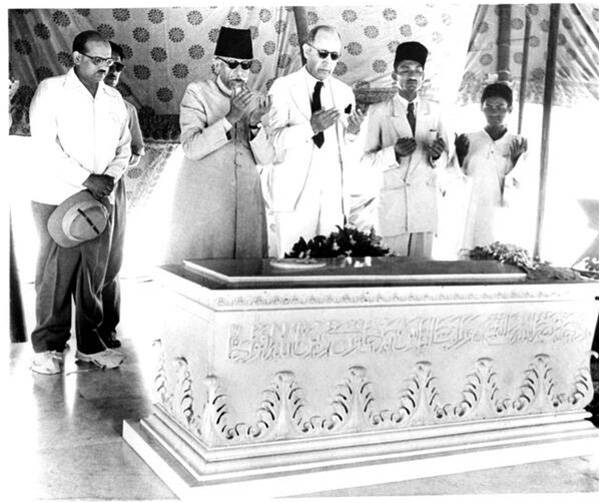
Veteran Congress leader Abul Kalam Azad prays at the grave of his political rival Muhammad Ali Jinnah during a visit to Karachi in 1951.
He wrote the following about the Quaid-e-Azam in 1948:
"Mr Jinnah himself was an ambassador of Hindu-Muslim unity… But he felt aggrieved when the Congress formed governments in seven states and ignored the Muslim League. In 1940 he decided to pursue the partition demand to check Muslim political decline…
"Mr Jinnah has every right to his opinion about me, but I have no doubts about his intelligence. As a politician he has worked overtime to fortify Muslim communalism and the demand for Pakistan."
He wrote the following about the Quaid-e-Azam in 1948:
"Mr Jinnah himself was an ambassador of Hindu-Muslim unity… But he felt aggrieved when the Congress formed governments in seven states and ignored the Muslim League. In 1940 he decided to pursue the partition demand to check Muslim political decline…
"Mr Jinnah has every right to his opinion about me, but I have no doubts about his intelligence. As a politician he has worked overtime to fortify Muslim communalism and the demand for Pakistan."

